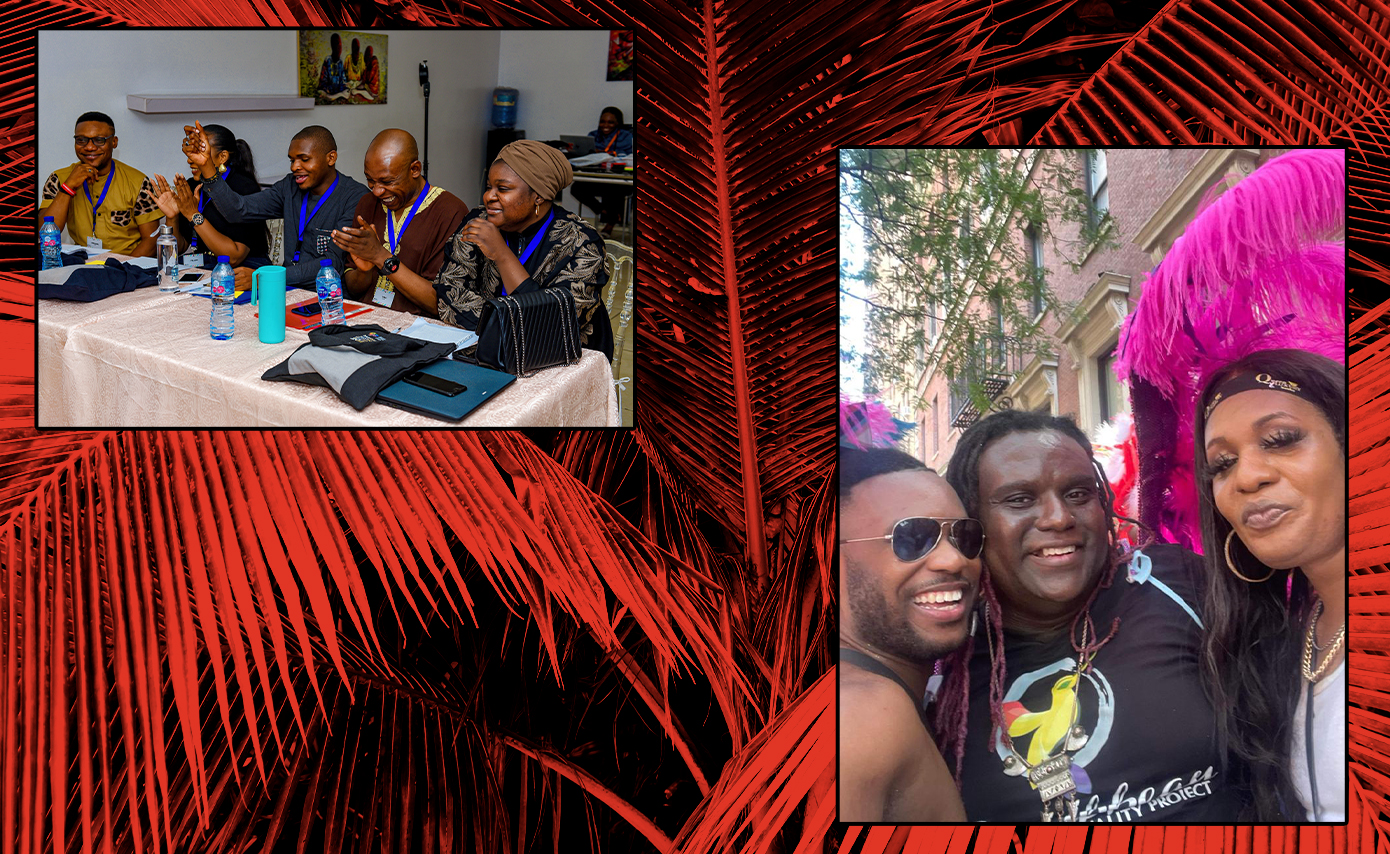
Globally, there is a disparity in the rights afforded to LGBTQIA+ individuals. Amplifund, a partnership between GAY TIMES and GiveOut, has been created to aid the global movement to advance LGBTQIA+ rights, provide vital resources and support the progression towards equality.
Rainbow Alliance (Myanmar)
The Rainbow Alliance is one such NGO that works to raise awareness and provides social public advocacy to empower LGBTQIA+ youth in Myanmar, South East Asia. Its goals are achieved through career development initiatives, mental health support, humanitarian aid and, when necessary, providing emergency safe shelter to those experiencing gender-based violence. This is “vital” for LGBTQIA+ youth, however providing these life-line services is challenging. “LGBTQIA+ groups have been unable to serve their members due to insecurity, difficulties and a lack of long-term funding,” May Kanyar Pyo (name changed to protect their identity), a member of the Rainbow Alliance, tells GAY TIMES.
“The shortage of LGBTQIA+ groups in Myanmar has an adverse impact on the lives of LGBTQIA+ individuals and exposes them to social discrimination from people in the community. It is an extremely dangerous condition because law enforcement has also been unavailable for years.”
Pyo explains the “essential” need for a co-ordinated international effort to uplift the work of local NGO groups: “LGBTQIA+ individuals should be taken into consideration when discussing political and human rights concerns alongside other disadvantaged communities.
“They require equality, human dignity and the will to persevere. As a result, the global community needs to support the vital work that LGBTQIA+ groups do in Myanmar and concentrate on their long-term growth.
“It’s essential the UN, embassies, donors and the global LGBTQIA+ community understand and take in the needs of all LGBTQIA+ individuals, LGBTQIA+ groups and consider all perspectives in the advancement of LGBTQIA+ rights.”
Currently in Myanmar, same-sex relations are punishable by up to 10 years prison under section 377 of the penal code, a legacy of post-colonial British rule. The military takeover in 2021 has further exacerbated the situation, with many LGBTQIA+ activists being targeted, arrested or even killed by the junta, a military or political group that rules a country after taking power by force, for taking part in peace protests.
ESBISQUET (Indonesia)
Intrinsic to the work of GAY TIMES is the mission to create a world where all LGBTQIA+ people thrive. This is achieved through the amplification of journalistic voices, artists, culture makers and activists to increase the reach of their messaging across international borders.
ESBISQUET, an Indonesian forum for lesbian, bisexual, queer and trans people, provides advocacy and education on LGBTQIA+ issues, specifically on gender diversity, sexuality and sexual and reproductive health rights.
“This forum is very important, because it’s the only community in Central Kalimantan to voice and encourage fulfilment of human rights for various genders and sexuality groups,” Adham Al Ghofur, a member of ESBIQUET, tells GAY TIMES.
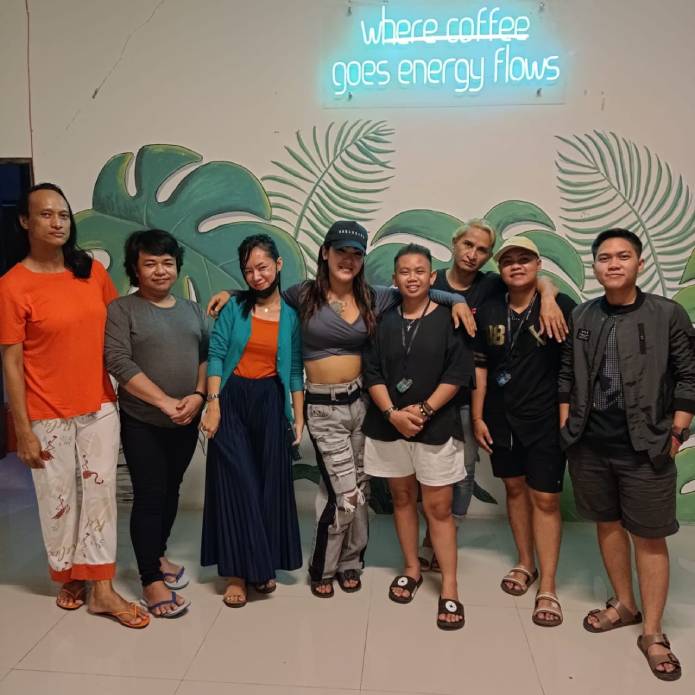
Courtesy of ESBISQUET
“It’s essential that ESBISQUET received strong support from the wider global movement for LGBTQIA+ liberation. Support, both financial and structural, will allow us to realise our vision and mission to have a long term, positive impact on LGBTQIA+ groups in Central Kalimantan.”
In Indonesia, Parliament passed a new criminal code in December 2022 that effectively renders all same-sex conduct illegal, according to Human Rights Watch. Last July, ASEAN SOGIE Caucus, a regional group of human rights advocates from various countries in Southeast Asia, were forced to cancel a gathering of LGBTQIA+ activists in Jakarta due to “a series of security threats,” the organisers said in a statement given to Reuters.
The Queer Muslim Project (India)
Online amplification of local community voices continues to be a key device in promoting the freedom of LGBTQIA+ individuals. The Queer Muslim Project is a buzzing global community of over 46,000 people. The NGO uses art, culture and media to facilitate storytelling “to challenge harmful stereotypes and norms, build power and visibility of underrepresented LGBTQIA+ artists, storytellers, and communities, and enable them to shape their own narratives,” Maniza Khalid, Programmes Manager at the Queer Muslim Project, tells GAY TIMES.
Across the media landscape there is the perpetuation of harmful stereotypes that negatively impact the experience of LGBTQIA+ people, which is not a new phenomenon. In fact, eight years ago, the inaugural European Union Agency for Fundamental Rights report into the experiences of LGBTQIA+ individuals across 19 member states flagged that “wrong and outdated views towards LGBTQIA+ people endangered their fundamental rights.”
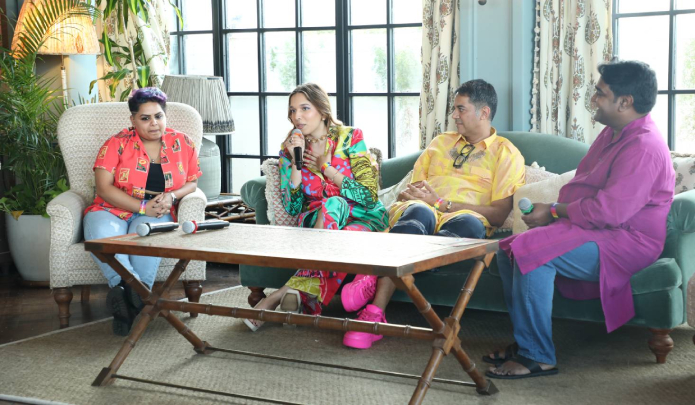
Courtesy of The Queer Muslim Project
Khalid highlights that “across the world, we are seeing the mainstreaming of stories and sentiments that fuel hate and bigotry against LGBTQIA+, Muslim, and marginalised communities.”
“We believe that queer people should have agency and authorship over their stories,” she continues. “Through our programmes, we offer tools, resources and networks to underrepresented artists and storytellers to tell stories that can reach wider audiences and create meaningful change.”
One of the main ways to combat this, according to Khalid, is to consume media in a critical way: “We ask that you demand stories that include silenced voices and frame people from the margins as nuanced and complex.”
In order “for a larger cultural shift to happen, we need an intentional and consistent effort to showcase diverse queer narratives and talent everywhere stories are shared.”
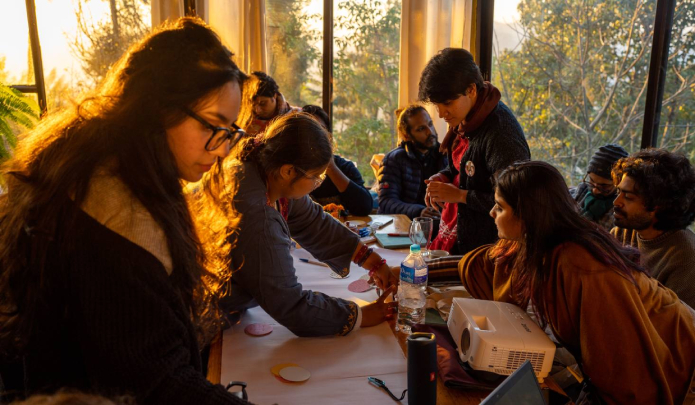
Courtesy of The Queer Muslim Project
Transwave (Jamaica)
Amplifund provides a designated space within the GAY TIMES eco-system to explore the richness of queer culture, life, history and politics of countries within the Global South. Amplifund highlights the sheer breadth of the global queer experience, from emerging culture to legal and humanitarian activism. By working with the esteemed local activists and journalists behind the movements, we broaden our view on increasing our understanding of the divergence within our community and remembering the importance to celebrate the uniqueness in our cultures.
Transwave is Jamaica’s only trans-led and focused organisation working “for the health and well-being of the trans community living in Jamaica and by extension the wider Caribbean,” Renae Green, Executive Director of TransWave Jamaica, tells GAY TIMES.
“Trans people are among the most marginalised groups of people in the world. This is especially so in Jamaica, we face high levels of stigma and discrimination, homelessness, unemployment and are at high risk for HIV and AIDS,” they add.
“We as an organisation are trying to dismantle the barriers that create these obstacles for the trans community in Jamaica through our work.”
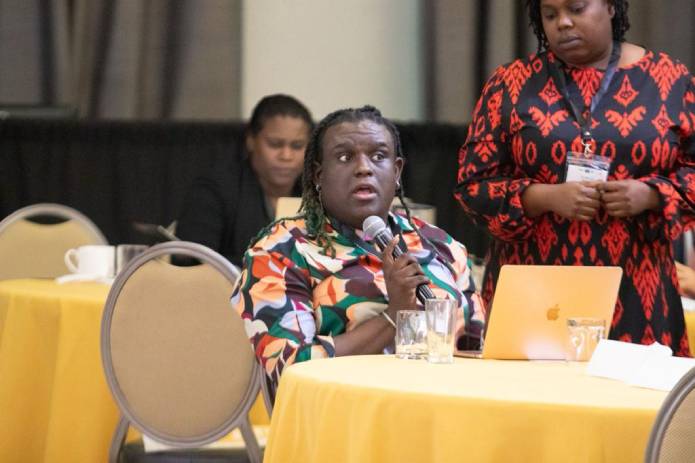
Courtesy of Transwave
Transgender people in Jamaica are subject to widespread discrimination, violence and barriers to accessing the health, education and justice systems, which often leads many trans people towards survival sex work, according to GiveOut and its work with organisations in the region. The country lacks legal recognition of gender identity and has no specific laws protecting individuals from discrimination based on gender identity.
Bisi Alimi Foundation (Nigeria)
The main factor contributing to the ability of an LGBTQIA+ individual to live with ease and express their gender identity and/or sexuality authentically is where they were born. Liberation, however, is not a one-size fits all approach and needs to be spearheaded from within each community, taking into consideration the geo-political considerations that define the experience of an LGBTQIA+ individual from a specific region.
In 2014, Nigeria enacted one of the world’s most stringent federal anti-LGBTQIA+ laws that criminalised same-sex sexual activity. Under Sharia Islamic law, homosexuality is banned with punishments ranging from 14 years to death by stoning. “These laws have contributed to the harsh realities fanned by misinformation and homophobia in a climate that is religious, conservative and highly homophobic,” says Nell Thompson, the Program Manager of Bisi Alimi Foundation, a charity focused on researched based learning to inform their program offering that drives to accelerate the social acceptance of LGBTQIA+ people in Nigeria.
“This has allowed the continued violence to be perpetuated unchecked by both state and non-state actors on LGBTQIA+ individuals in the country, thus resulting in LGBTQIA+ persons’ limited access to social care, justice and economic inclusion,” he added.
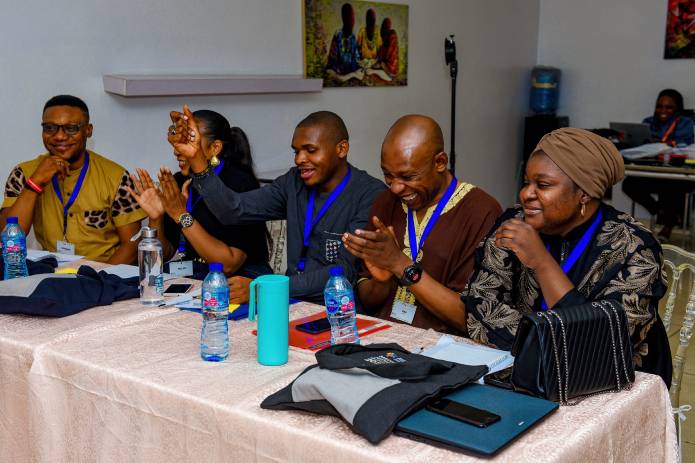
Courtesy of Bisi Alimi
The work of Thompson and the Bisi Alimi Foundation is imperative because they “understand the misinformation and misconceptions deliberately fanned by the anti-rights religious groups to spread hate against the LGBTQIA+ community.” In addition, they “push back, resist, educate, build hope and support members of the community through programs that build their awareness and develop their personal and leadership skill.”
An example of one such program is the Rainbow Academy, a 12-month leadership personal development fellowship focusing on building the capacity of LGBTQIA+ people across Nigeria. Thompson continued to explain the importance of “social media” to combat the spread of “misinformation” and the need to be proactive to “develop content that is LGBTQIA+ Nigeria-focused to ensure everyone has access to free-flowing information and knowledge.”
As the Program Manager, Thompson has trained “lawyers and journalists on topical LGBTQIA+ issues, building their capacity towards effective representation and reporting of LGBTQ issues.” This armament of the community aims to empower them to become “agents of socio-economical change.”
Amplifund, through GiveOut, supports the global movement for queer liberation. Donations to Amplifund help to support LGBTQI queer-led NGOs across the world, organisations who are collectively advancing the global LGBTQIA+ movement everyday.
If you’ve learnt something or been frustrated by what you’ve read today, don’t just move on, find out more about the movement here or, better still, donate here.